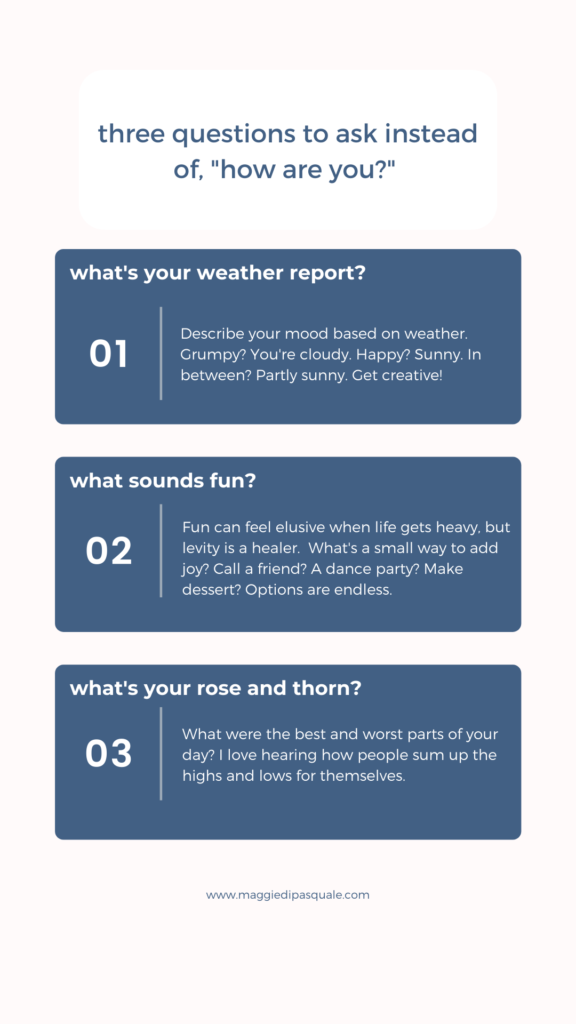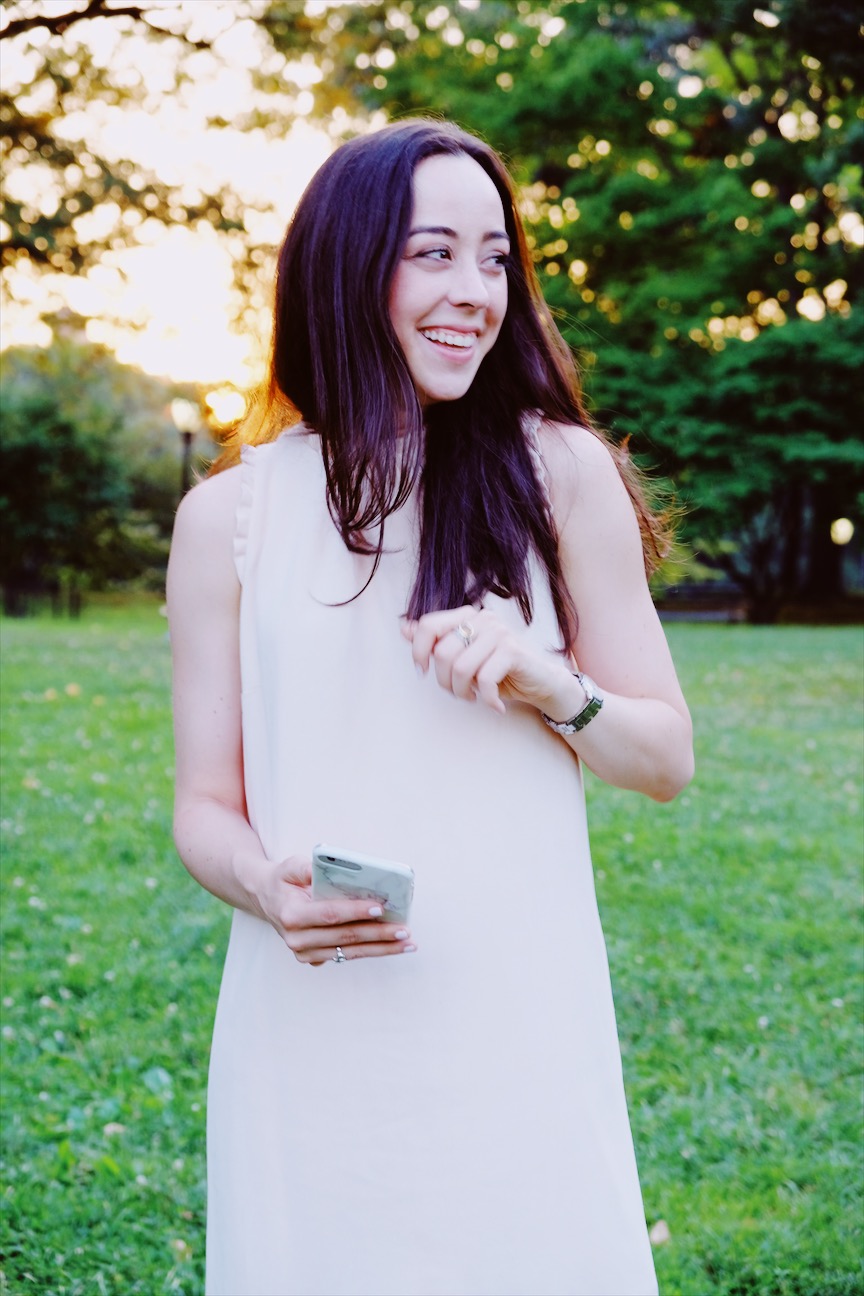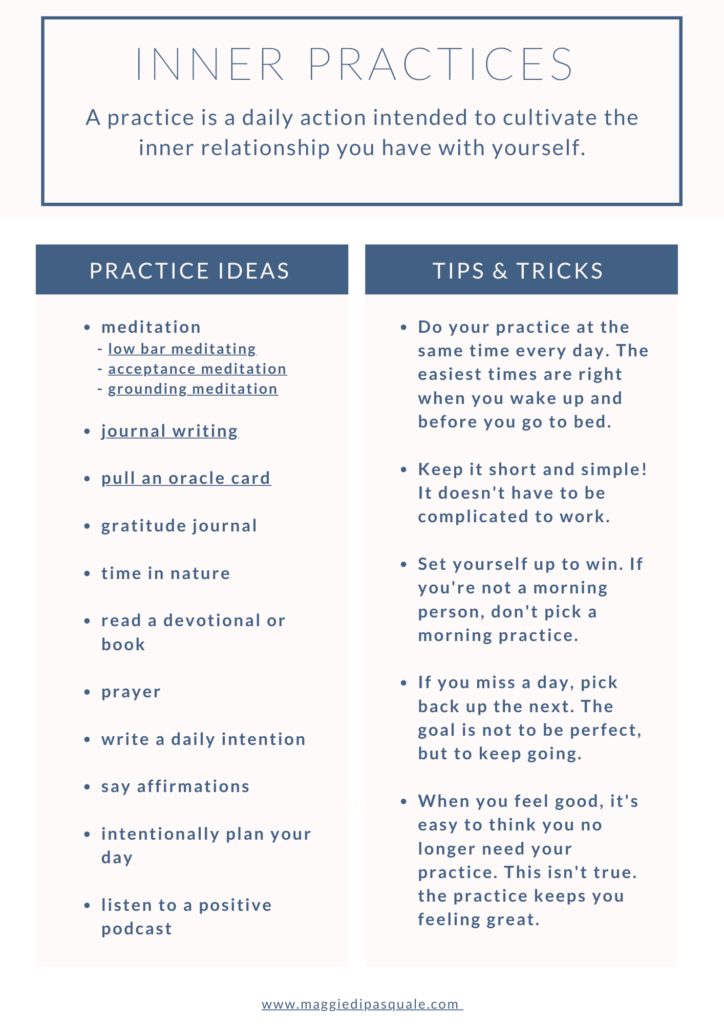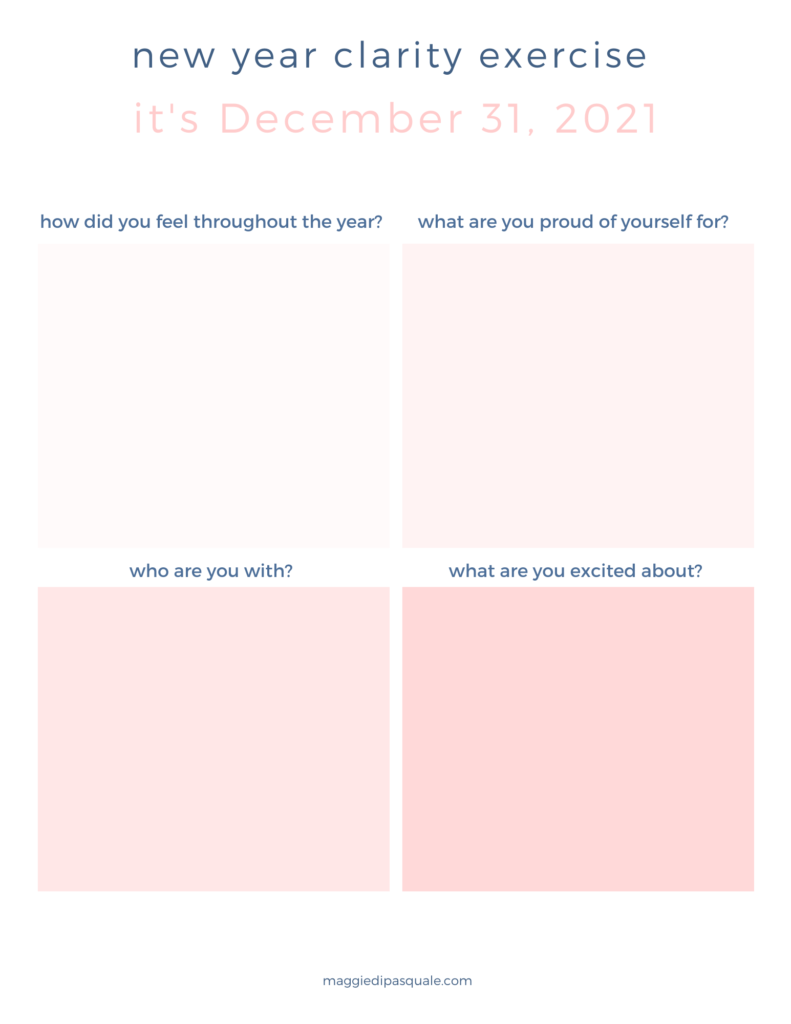3 questions to ask instead of, “how are you?”
Ever have someone ask you how you’re doing and respond, “I’m good. How are you?” without giving it an ounce of thought?
I think we do this for two reasons:
1. we’re not sure if the person asking really wants to hear how we’re actually doing
2. we have no idea how we feel (maybe the biggest reason)
That’s why I’m sharing 3 questions to ask instead of, “How are you?” I love these because they’re clear to the person you’re asking that you really care. They’re creative so they make you think and they’re quick!
I even recommend doing these as an inner practice/ritual so you can get to know yourself. It’s important to figure out how you feel because it affects every relationship you have. Supporting your inner life supports your outer world. Also when we share our feelings with our friends and give them space to share theirs, it creates a deeper connection, which many of us old souls really look for. Let’s get on to the questions:

what’s your weather report?
I love asking my students this. It’s something I learned during my teaching practicum in my Master’s program. You describe your mood based on the weather. If you’re grumpy, maybe you’re cloudy. Happy is sunny. Get creative. Maybe you’re in-between or feeling blah, then you’re partly cloudy. It’s fun to think about your mood in terms of weather. Feel free to get descriptive. For example, I’m very tired right now and I would describe my weather report as foggy ha!
what sounds fun?
I suggest asking yourself this one often because it can help you get in touch with your needs. Sometimes fun can feel really elusive especially when life gets heavy, but levity is a super healer. What’s a small way you can add joy to your life? When you ask yourself, “What sounds fun?” would it be fun to take a walk, call a friend, have a dance party, make a dessert? The options are endless and it’s really the antidote to overwhelm. I have a whole podcast on this technique that you can get here if you want to dive deeper.
what’s your rose and what’s your thorn?
I guess that’s technically two questions (ha!), but my best friend and I texted each other this all the time. Your rose is your high of the day and your thorn is your low. I love this one because it’s like a little reflection. You’re able to take an inventory of your day.
Figuring out how we feel is a form of self-reflection and is important because it helps us feel and process feelings, build our inner relationship to ourselves, and help us understand ourselves in a way that improves our relationship to our outer world. When we bring these questions to our friendships, it’s a way to connect, see how people are really doing, and share your inner life with someone else. If you’re looking to build a relationship with yourself and a deeper one with the people in your life these questions are a great place to start.


